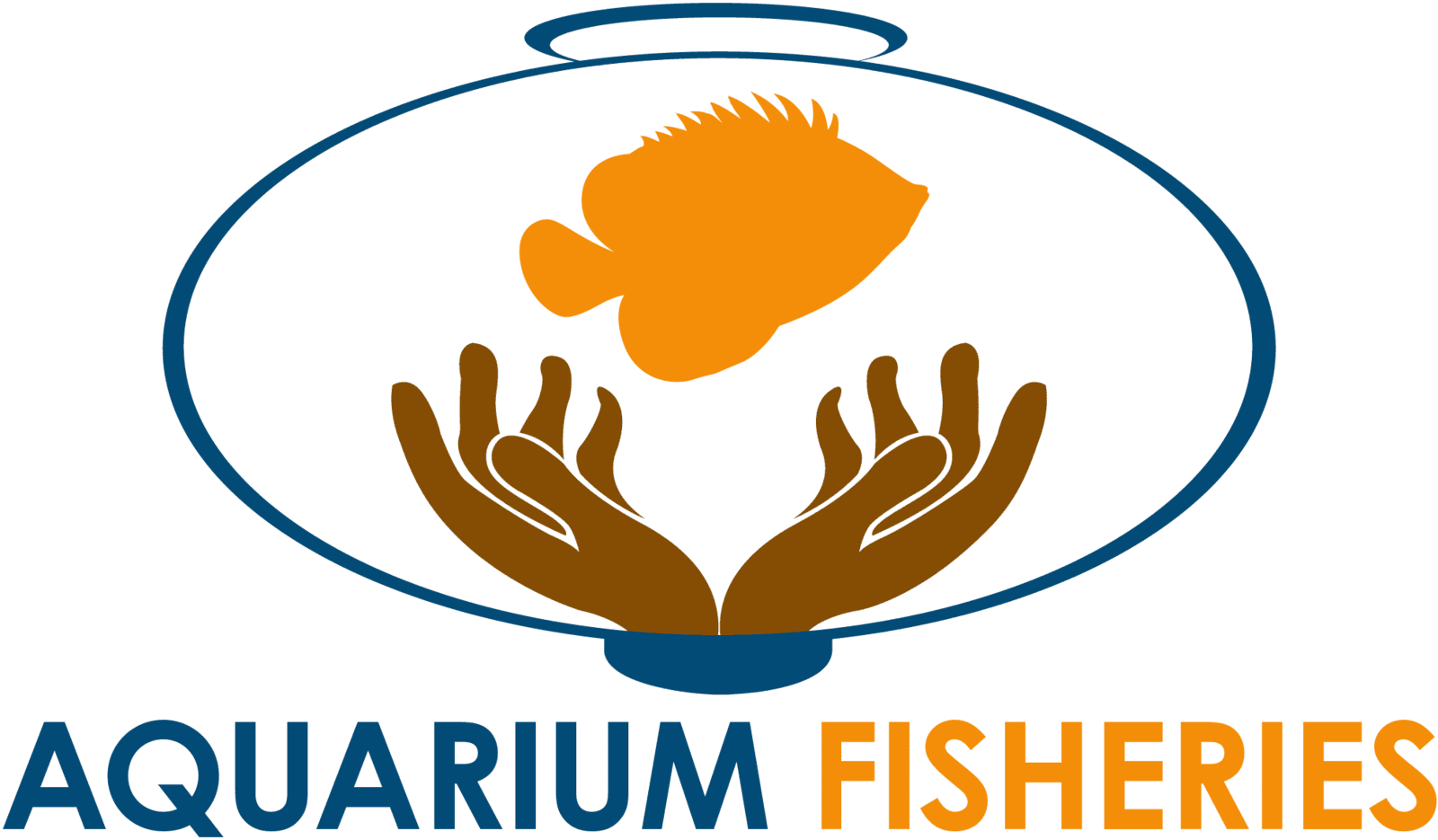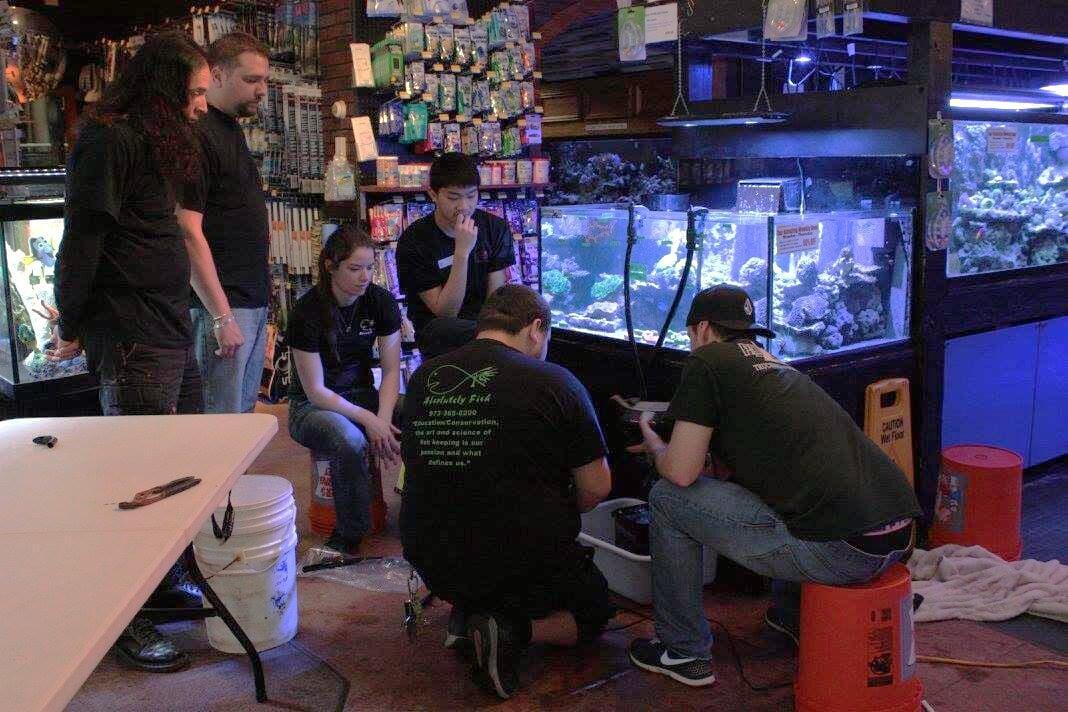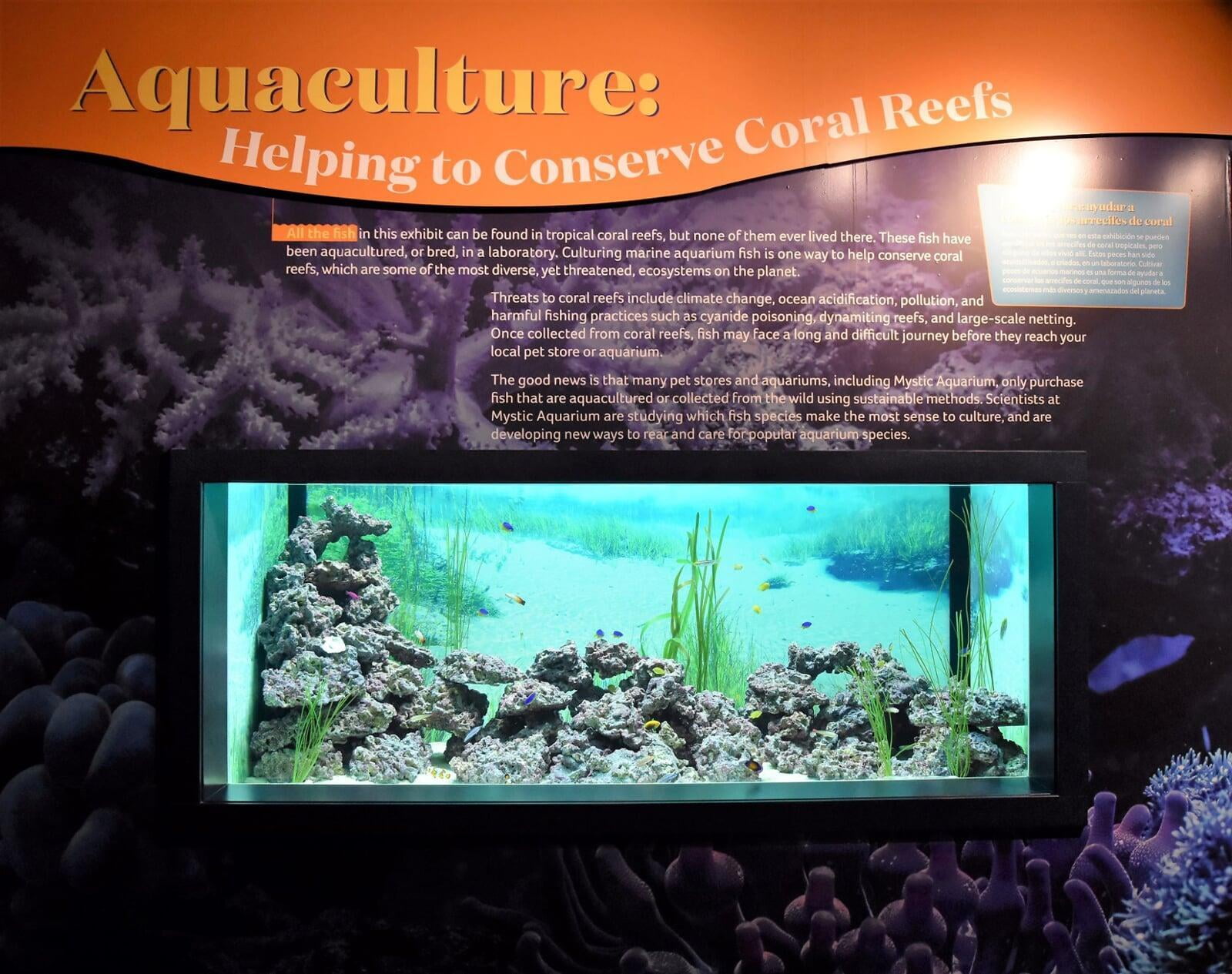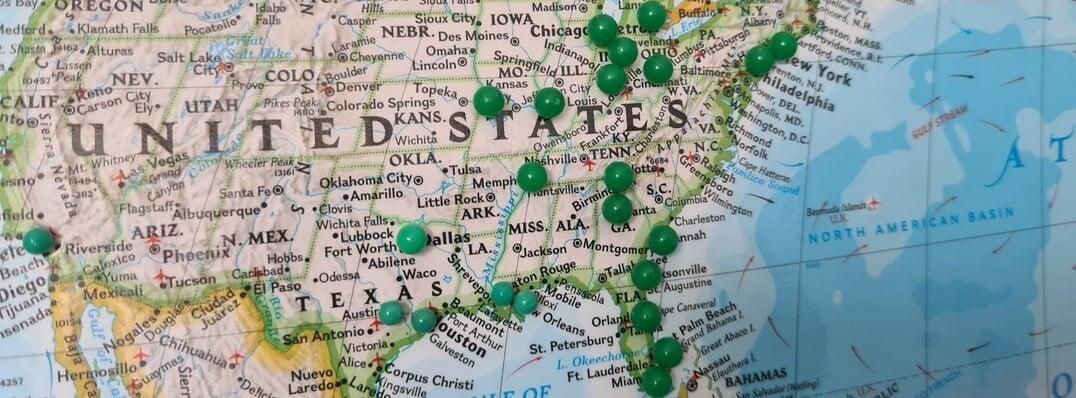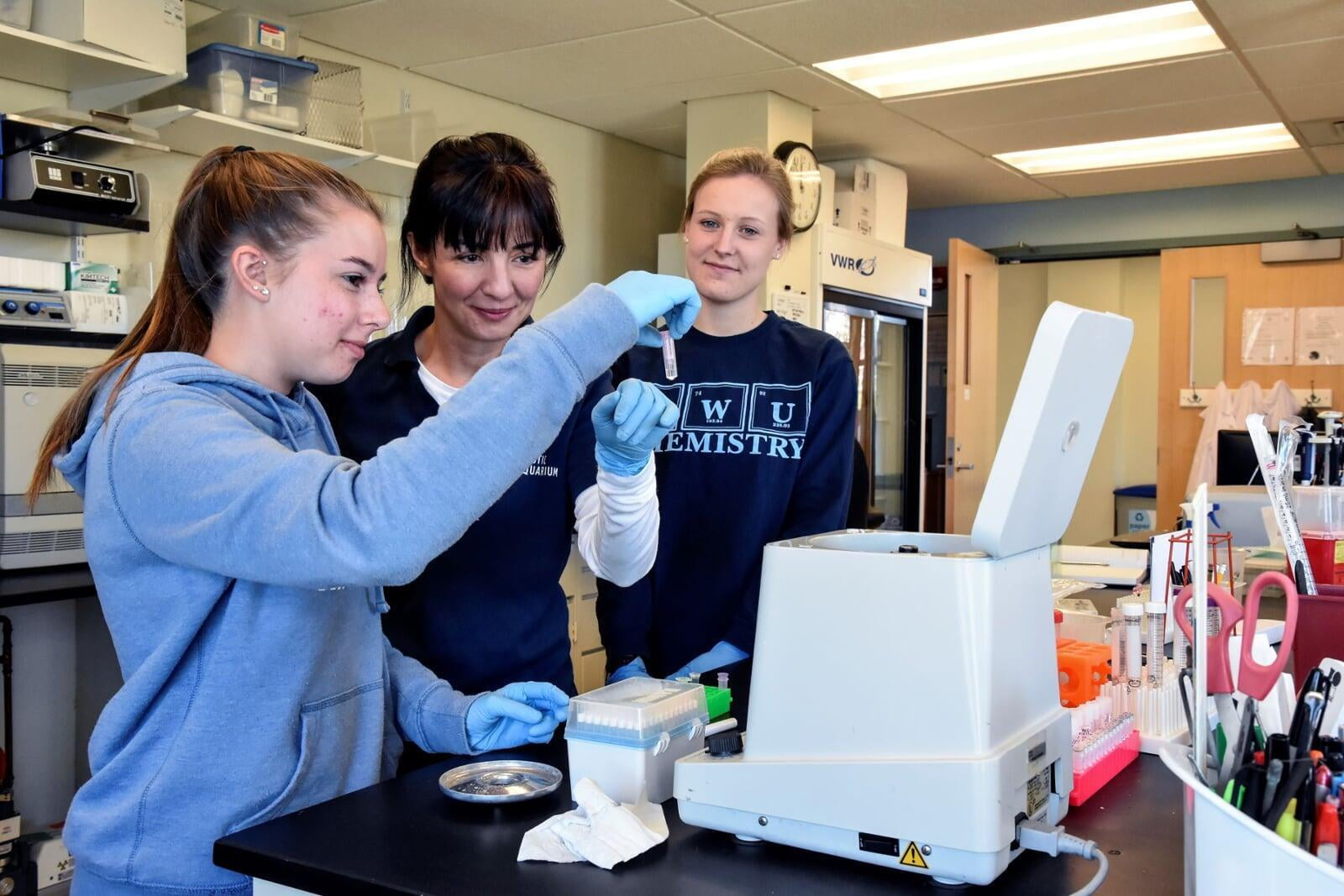Aquarists train each other in aquarium maintenance techniques at Absolutely Fish, a fish retail store in Clifton, NJ (USA).
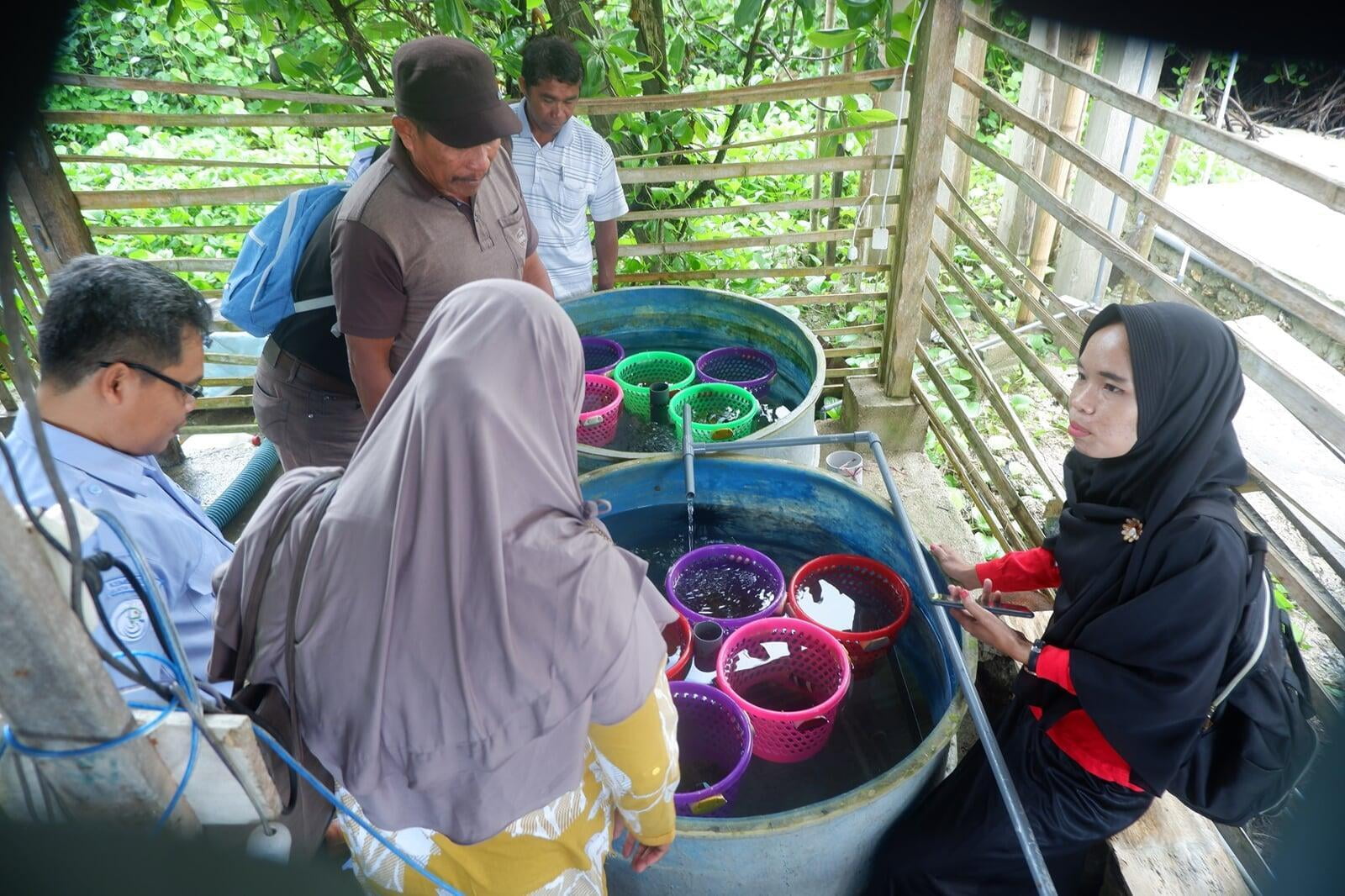
Upgrading the Value Chain means changing the paradigm of the way aquarium fishes are traded globally. When fish are sold, profits accrue to stakeholders in the middle of the chain--retailers, wholesalers, importers, exporters, and other traders--leaving little left for the fishers. In some source locales, fishers earn just pennies per fish, offering little incentive to handle, care for, and package them properly. Instead, fishers are incentivized to catch more fish in order to provide for their families.
Aquarium Fisheries works to change the paradigm from this volume-driven approach to a value-driven approach, where all stakeholders in the value chain--including fishers--are incentivized to command premiums for healthy, high-quality fish that survive the trip from the wild to retail. We do this by discovering strategies to move value up the chain, and teaching best practices in fish husbandry and business management to stakeholders throughout the value chain.
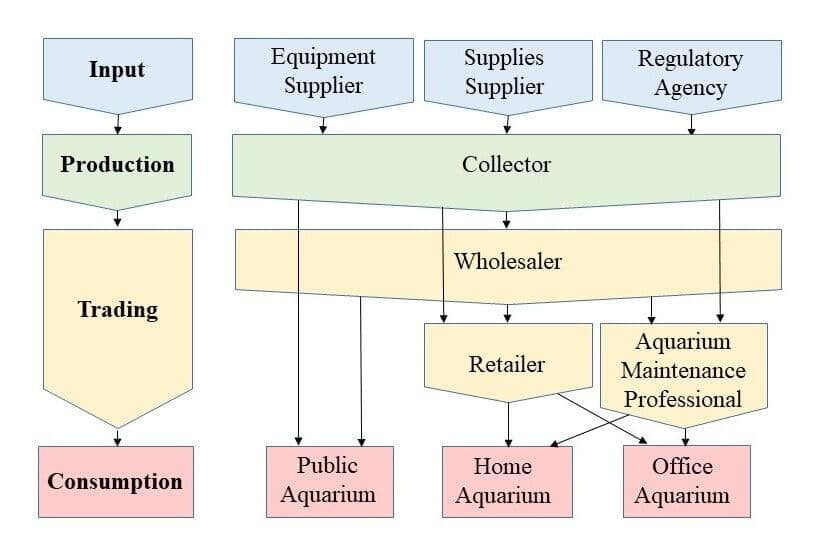
Value Chain Analysis
Aquarium Fisheries specializes in Value Chain Analysis (VCA), which begins by mapping market processes and economic actors, elucidating linkages among them. All value chains operate under governance, whether formal (laws, regulations) or informal (professional codes of conduct). The VCA discovers the rules at play in a value chain, revealing the distribution of power among its actors. Understanding the linkages among actors provides practitioners with a roadmap to strengthen the relationships among them, which lays the groundwork for improvements in the value chain. The analysis searches for and discovers challenges in the value chain, yielding recommendations for improvement or upgrading. For the aquarium fish trade, these could include, for example, harnessing technology to conduct business operations more efficiently, shifting demand to resilient species that may offer increased revenue opportunities for fishers and traders, higher valuation of fish species, and increased survival of species across the value chain, and therefore, profits.
Education
Education is at the core of Upgrading the Value Chain. Aquarium Fisheries and its partners infuse insights and recommendations that arise from the VCA into educational programming that reaches actors across the global value chain--from fisher to home aquarist. The goal is to change the paradigm from a volume-driven approach to a value-driven one by improving the standard of care of fishes along the value chain, increasing survival of fishes, reducing the need to catch more fish to offset losses, and boosting the profits of fishers and traders around the world.
Our Legacy
Learn about our past successes below.
